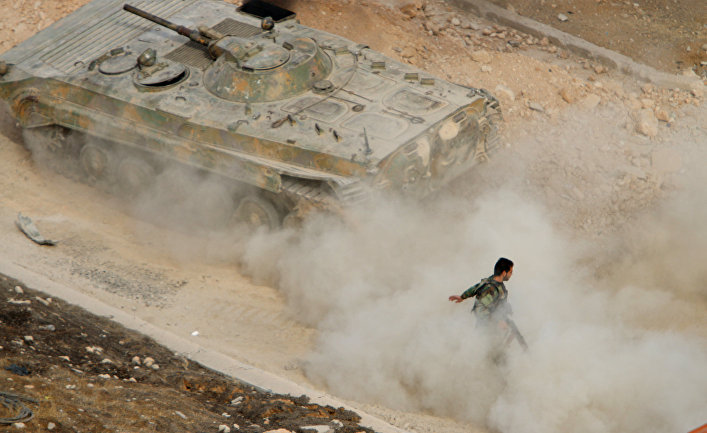The US has lost the art of diplomacy. American foreign policy can go one of two ways – threatening sanctions, or threatening invasions. Meanwhile, even before their next armed conflict starts, Washington has no clue what will happen when it eventually ends. The cause of this situation is the poor standard of the US diplomatic corps. In normal countries, top-level Foreign Ministry positions are awarded to high-flight professionals who have trained for many years. However, in the USA, ambassador posts are dished-out as rewards to people who played an active role in getting the President elected. The journal “Russia in global politics” has run an article – titled “Diplomacy – a lost art?”- on this topic by a former US diplomat and Pentagon aide, Chaz Freeman. Lenta.ru offers its readers an abridged version of Freeman's article.
The business of diplomacy lies in finding common ground — by listening to what the other side say, and to what they don't say – and devising reasonable responses. Diplomacy enables countries to further their interests and smooth the path with other nations, while practically never resorting to force. Diplomacy aims at finding mutually acceptable ways of achieving temporary, but binding agreement between differing cultures. Diplomacy translates national strategy into a tactical dimension in order to achieve political, economic and military benefits without resorting to aggression. Diplomats are an outpost who guard national security and defense. If a diplomatic mission fails, the result can be the horrors of war.
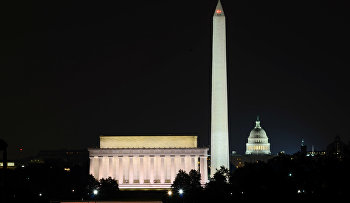
Yet diplomacy is not merely the alternative to war. Diplomacy does not automatically end, even if war begins. If war is unavoidable, diplomacy should be about easing the results of war, by building collaborations that establish new relationships and a new world. The defeated nations must be reconciled to their defeat, and a new, stable status quo must emerge. Consequently, skilled diplomacy is vitally important to ensure the power, wealth and well-being of the nation. Diplomacy is a strategic activity which calls for a review of the prevailing conditions, perceptions and parameters of international issues. Sometimes it is necessary to readjust the national interests of other countries, so that they feel that they are acting in their own interests. They should never feel that they have capitulated to a foreign power.
The rapture of power, and the militarization of consciousness
Since the time that the implosion of the USSR released Americans from the fear of nuclear Armageddon, American foreign policy has been effected exclusively through economic sanctions and military deterrents. Such measures, however, are not the only weapons in a government's arsenal. But Americans are not in the business of winning the respect of other countries by example or charm offensives. They won't be persuaded away from their chosen course, they set little value on their own prestige, they do not watch over weaker nations or help them in nation-building – nor do they offer incentives for 'good' behavior. Washington has always believed in shooting first, and asking questions afterwards.
For the majority of representatives of our political elite, the US's supreme military might and economic domination justify any possible objections from bumptious foreigners when their subservience is demanded. When challenges arise, we habitually rattle our sabers rather than looking into solving the problems that have arisen. This way of operating actually chips away at our safety-levels. Such tactics put our allies on edge without quelling our foes – they destabilize entire regions, create fresh enemies, and build a wall of alienation with our friends. Beyond our own borders there are few who doubt the military abilities of America, or our readiness to resort to “shock and awe.” Yet despite this, we still feel the need to give ourselves, and others, a display of how “tough” the US is.
In recent years the United States has massacred vast numbers of people in wars, and in drone attacks on terrorists in Western Asia and North Africa. We have also spilled the blood of our own soldiers during these incursions. These displays of American ferocity have inflicted colossal injuries and suffering on other nations, but have done nothing to make those countries bend to our will. Our interventions on both land and sea have failed to provide a higher level of security for either ourselves or our allies.
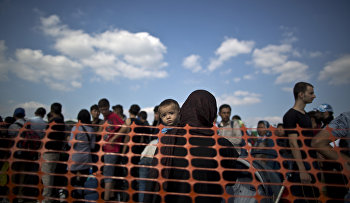
The militarization of our culture and consciousness has caused us to view the rest of the world through missile-sights. The reaction of the majority on Capitol Hill to the repeatedly-demonstrated failure of military intervention has simply been that success would have been guaranteed if only American had gone in with an even tougher military assault in the first place. But the use of force in the resolution of conflicts still does not prevent dynamic changers in the global and regional distribution of economic, military and political power. There is no basis for believing that an even greater military force would yield better results. This is something which most Americans understand. Ordinary people view the military-industrial set-up in the USA with great cynicism, and look askance at Congress's wish to impose their neo-conservative agenda on America's populace. The American people have no wish to stake their nation's future on the rapidly-collapsing status-quo of a post-war world.
The Limits of Exceptionalism
American security strategy has traditionally been based on utterly baseless prejudices which are based on elements of our national history. These are assumptions Americans hold at a subconscious level, that have formed a dogma enshrined in doctrine. Today there is a whole battalion of scientific researchers earning their daily bread in researching ways to put this dogma into practice for the Pentagon. They've developed an entire intellectual rationale for the military-industrial complex, in the shape of an endless number of different scenarios predicated on the use of force. The American right believes their country is “exceptional.” Amongst many other things, our experience of armed conflicts, along with our understanding of the interrelationships between war and diplomacy can be called “unparalleled” – perhaps even “abnormal.”
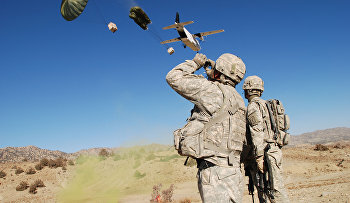
War ought to be the last resort in the affairs of nations. In some cases, war's purpose is to capture and subordinate the population of other countries. But most usually, war is a means of exterminating imaginary threats, displaying aggression, restoring the balance of power, forcing consent on the location or relocation of borders, or compelling the enemy to alter its policies. War soldiers on until the losers admit losing, or accept the terms which have been forced upon them. Wars frequently end round the negotiating table, where the outcome of military action is implemented in terms of a new political deal that ushers in a new political order. But American wars? No, they don't end like that.
In the American Civil War, in the First and Second World Wars, and in the Cold War too, the USA sought to achieve the 'unconditional surrender' of its enemies, a defeat imposed on the entire world – but this achieved nothing in the direction of moral, political or economic post-war rebuilding. The more small-scale wars conducted during the 20 century didn't exclude Americans from their bizarre refusal to consider other models of warfare with limited goals. The Korean War ended in a stand-off, and the truce of 1953 achieved nothing for lasting peace. In Vietnam, America had to accept defeat. Grenada (1983), Panama (1989) and Iraq (2003) all achieved “regime change” – but none of them ended in agreed terms for the cessation of hostilities, far less in establishing lasting peace.
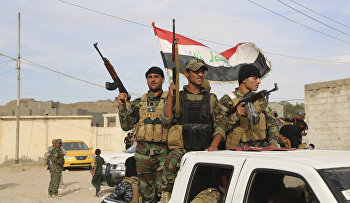
America has had no recent experience in ending a war by negotiation with the countries who were defeated. Our habit is to rate success in terms of the degree to which we have annihilated the enemy, so that no danger remains, crushing their dignity by refusing to respect them, or involve them in any serious attempts at a peace process. American wars are planned a campaigns that pursue a purely military objective. Habitually we never draw up any objectives for our wars, nor do we have any plan for negotiations to make our defeated enemies agree to our terms for the cessation of hostilities.
When a military campaign lacks clearly-defined objectives, it permits politicians to introduce mission creep along the way. Fighting is almost inevitably prolonged this way. Since the conditions for victory were never clearly set, none of our soldiers, marines, airmen or naval captains can ever say for sure if their mission has been accomplished. This habit of not giving the armed forces specific goals to achieve results in war that is to a lesser extent “the continuation of politics by other means,” and to a greater extent, the brutal punishment of American enemies. And as we punish them, we have no idea whatsoever what lessons they are supposed to be learning from the pounding that we're meting out.
Our armed forces are highly professional, and extremely effective in encounters against our enemies. But our forces hope that politicians will achieve something from their attacks on the enemy — something which rarely happens in practice. Today, almost all of our non-military politicians are non-specialists, who have been given their positions in return for their aid to their parties. Their inexperience, their theories of coercive diplomacy (which they studied in college), the traditional distance American politicians maintain from real military activity, and our already highly militarized political culture are all contributory factors to the inaction of diplomacy, exactly when it ought to be more active… when military campaigns come to a close.
The paradoxes of restraint
The Cold War brought diplomacy to the political equivalent of trench warfare – in which victory is considered to be an unchanged position, rather than successful maneuvers. Cold War taught Americans how to contain a conflict, with the threat that escalation could lead to a fatal exchange of nuclear strikes. Cold War taught us the value of preserving the status quo in order to contain potential conflict, rather than wasting time and effort on ways of defusing or removing the problems. We badly need to unlearn the things we learned in the Cold War. We still react to hostile events with threats of massive retaliation — rather than trying to use diplomatic efforts to defuse the situation. We roll out sanctions to voice our discontent, and make the public think they have tough-guy leaders – yet in reality these are irresponsible and worthless strategies.
The idea for using strategies is to force their target country to obey us. But once they are rolled-out, they become an end in themselves. Their success is measured in terms of the hardship and woe we've cause to the recipient country, rather than the level to which that country has changed its unwanted policies. I can't think of a single case in which sanctions, or the threat of sanctions, has helped in changing policy without a negotiating process – in which the acceptable offers could have been made.
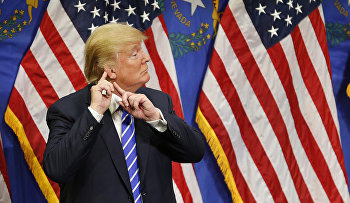
In many ways, the people worst-hit by sanctions are we ourselves. They create a wall which prevents us exporting our goods to the country we've sanctioned. The result is that the sanctioned countries decide they can do just great without our goods anyhow, and begin self-sufficiency campaigns. Their economies start to show a sharp uplift as a result. Sanctions harm specific groups in the USA, while others flourish. The people who make money out of them become interested in the continued imposition of the sanctions, and don't want any negotiations to begin.
Sanctions frequently bolster the political leaderships of the countries who have been sanctioned – since access to limited goods is usually in their hands. We can give North Korea, Mao-era China and Cuba as examples of regimes who were kept alive in a semi-dormant state by sanctions — who might otherwise have faced popular uprisings against them.
The dubious results obtained by sanctions are worsened by the American habit of combining them with political ostracism. Refusal to negotiate is a tactical maneuver deployed to gain time for improving your position actively and useful political bartering. But holding negotiations with the other side need not mean you grant them any favors. Diplomatic contact isn't a concession to your foe, but instead the chance to gather information about their logic and intentions, the better to comprehend their interests and find the gaps in their political position – which you can use, in the end-game, to win concessions from them.
The drop in professionalism
The US is the only world power which does practice diplomacy on a professional basis. In other developed countries, diplomats are people who have gained a special combination of expertise and methodology, who have a firm grasp of international relations, and who enjoy ongoing training in both the theoretical and practical aspects of the art of diplomacy. Diplomats hone their skills through the study of relevant and illustrative historic examples – they benefit from periodic training courses, and from the advice of experienced colleagues. They complete their knowledge and abilities through critical analyses of past scenarios and their flaws.
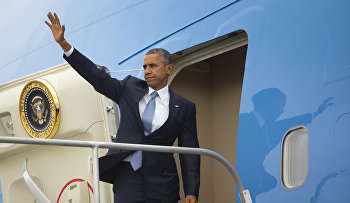
The US, however, believes that the advancement of its foreign policy is best entrusted to self-promoting dreamers and theorists – amateurs and dilettantes, whose training has not been wasted on professional skills, knowledge, practice or experience. The lower-ranking members of our diplomatic service are accorded respect for their intelligence, knowledge and inter-cultural skills. Yet our Ambassadors and high-ranking officials rarely get high praise from the international diplomatic community. The gulf between their professional acumen, compared with that expected of top-ranking officers in the US Armed Forces, is vast.
Once the Cold War was over, there was a noticeable increase in the numbers of low-ranked officials who had received their jobs as political thank-yous. This squadron of officials filled the ranks of almost the whole foreign policy establishment. Another place they found posts was on an already-bloated Security Council. The result was a steady decline in professionally-trained diplomats entering the diplomatic service at all levels – both in Washington, and at our embassies overseas. The US military are often required to take on diplomatic missions for which they have no training at all. This is yet a further step in the militarization of American foreign policy.
Unless a drastic change is made to the way in which diplomatic posts are assigned, the chances for making any improvements in the quality of the diplomatic corps are pitiful. Our ambassadors, consuls and amateurish diplomats are unequipped to provide career models for new entrants to the service. There is still no basic course, which would give the principles and examples of good practice for diplomats seeking to defend the interests of state. There's no course from which young diplomats could learn the arts of negotiating, compiling analytical reports, or the protection of Americans who live overseas. Nor has any professional approach been adopted for assessment and analysis operations. Since “debriefings” can impinge poorly on the careers of those who got their jobs as a political gift, or even worse, upon the administration itself, there's no development of this practice. Overall, people who choose a diplomatic career have no opportunity to learn from the mistakes of the past. There is no attempt to teach diplomacy at any of our national universities in the United States.
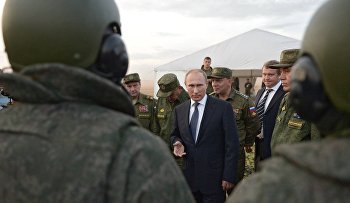
We're entering an era of strategic changeability, with no clear lines of defense, yet it has to defended with a style of diplomacy dating from the Cold War. US's leadership is viewed with increasing skepticism around a world whose growing challenges cannot be solved by military means. The time is due for a deeper kind of diplomacy, which would create a climate in which other countries who were following their own interests could make choices that balance our interests too – without forcing them to do so at the barrel of a gun. It's time to remember the tools of non-violent governance, in which we can convince other nations that they can find win-win solutions working with us, instead of working against us. It's well overdue that the administration of foreign policy was rid of the venality of job appointments made because someone was owed a favor after the election campaign. We need to start recruiting a diplomatic corps which is made up of professional, highly-trained staff, just the same way as our army is staffed – and expect that these staff will give of the best that they are able, for their nation's good.
